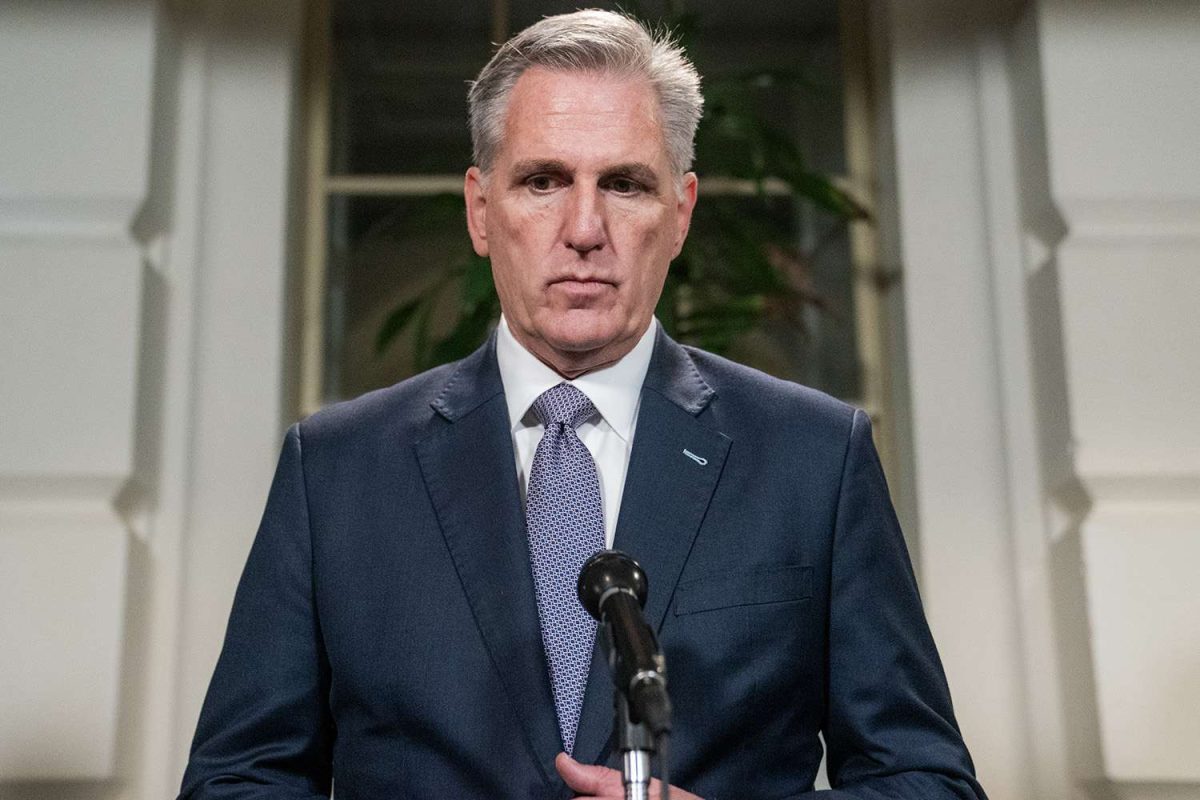On Tuesday, Sept. 3, Kevin McCarthy was removed as Speaker of the House after a conflict with far-right members of the Republican Party. While the vote to vacate the speaker position showed most Republicans supporting McCarthy, it was eight Republicans who took issue with the speaker along with the rest of the Democrats that pushed the vote to remove McCarthy from his role over the edge.
This vote to remove McCarthy was building up for a while. Far-right Republicans did not approve of some of his decisions, and McCarthy’s choice to work with the Democrats in the House of Representatives to avoid a shutdown was the last straw. The leader of this vote to remove McCarthy was led by Florida Republican Representative Matt Gaetz, who has threatened the rule to vacate against McCarthy for months.
This decision to side with the Democrats to avoid a government shutdown was important for McCarthy, even though it meant going against some of his party’s wishes to seek more spending cuts. This would have seen much of the functions of the federal government shut down or severely limited in their capabilities for the duration of the shutdown.
A major focus of the cuts seemed to be about aid to Ukraine, with many Republicans supporting continued aid, although some want to see that aid reduced or removed.
The decision to remove McCarthy as the Speaker of the House is unprecedented as this is the first time in the history of the U.S. the speaker has been removed. To be elected, the speaker relies almost entirely on their party to vote them in. In the same respect, the speaker would need to have some members of their party vote to have them removed. This has not been attempted or accomplished until now.
The choice for the Democrats to not support McCarthy might be surprising as he worked with them to keep the government from shutting down. From other actions, however, it seemed the Democrats were unwilling to trust McCarthy enough to protect him from being removed.
With McCarthy gone, it’s uncertain what this will mean for the House Republicans, as the effort to elect McCarthy was hard. With 15 rounds of voting, McCarthy was only elected when he agreed to allow a vote to vacate the speaker role if only one member called for it. Since this happened without the wishes of most of the Republican Party, it is unlikely they have a plan in place to deal with this situation.
Some Republicans voiced their shock and uncertainty for their future, like Arizona Republican Representative Debbie Lesko, who said, “This is a total disaster.” This could mean the House could be a ways away from having a new speaker.
Fears about fundraising for the Republican Party have arisen among some Republicans who saw McCarthy as an important figure for fundraisers. The National Republican Congressional Committee said McCarthy helped them raise $40 million in the last election cycle.









